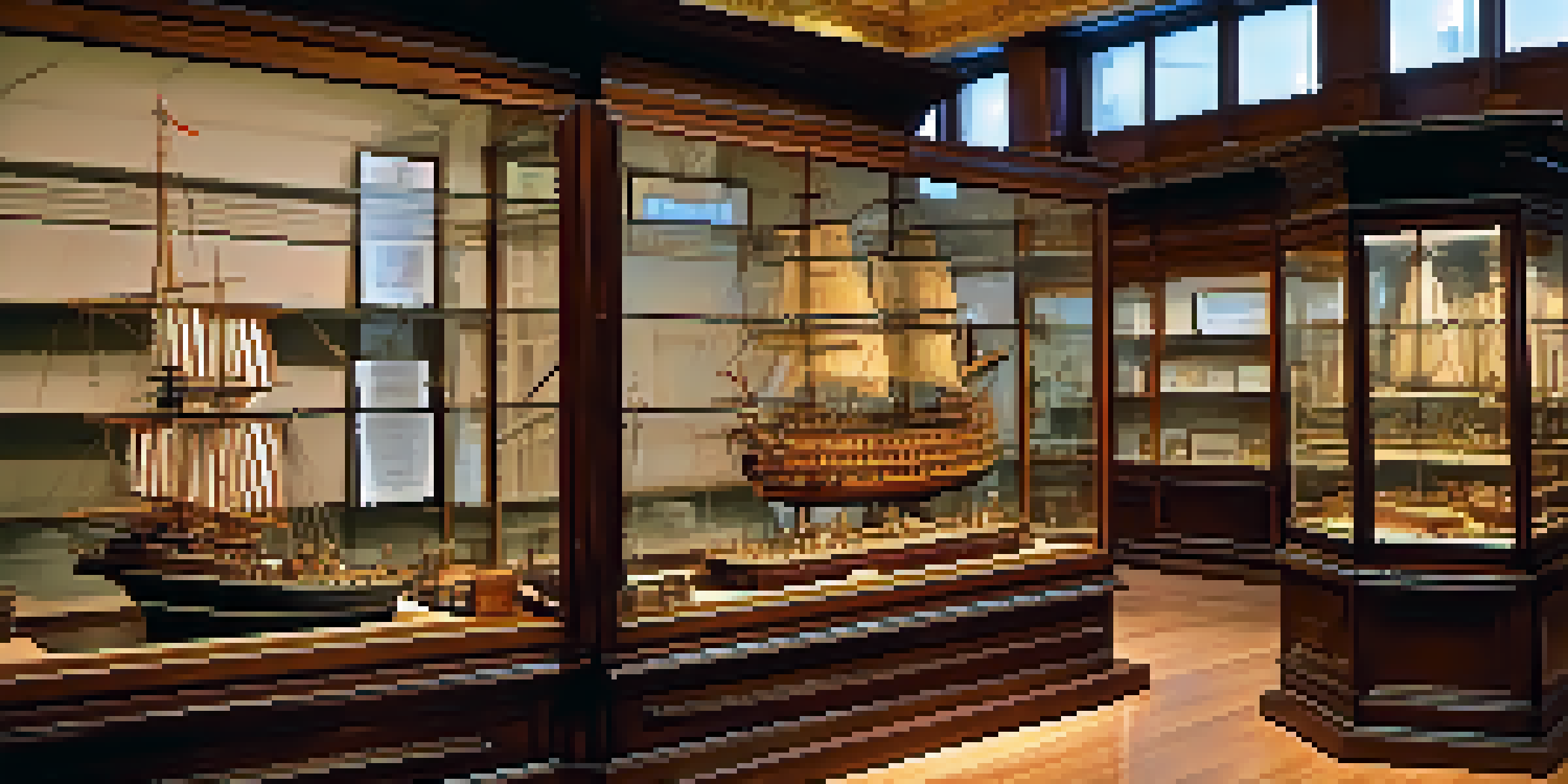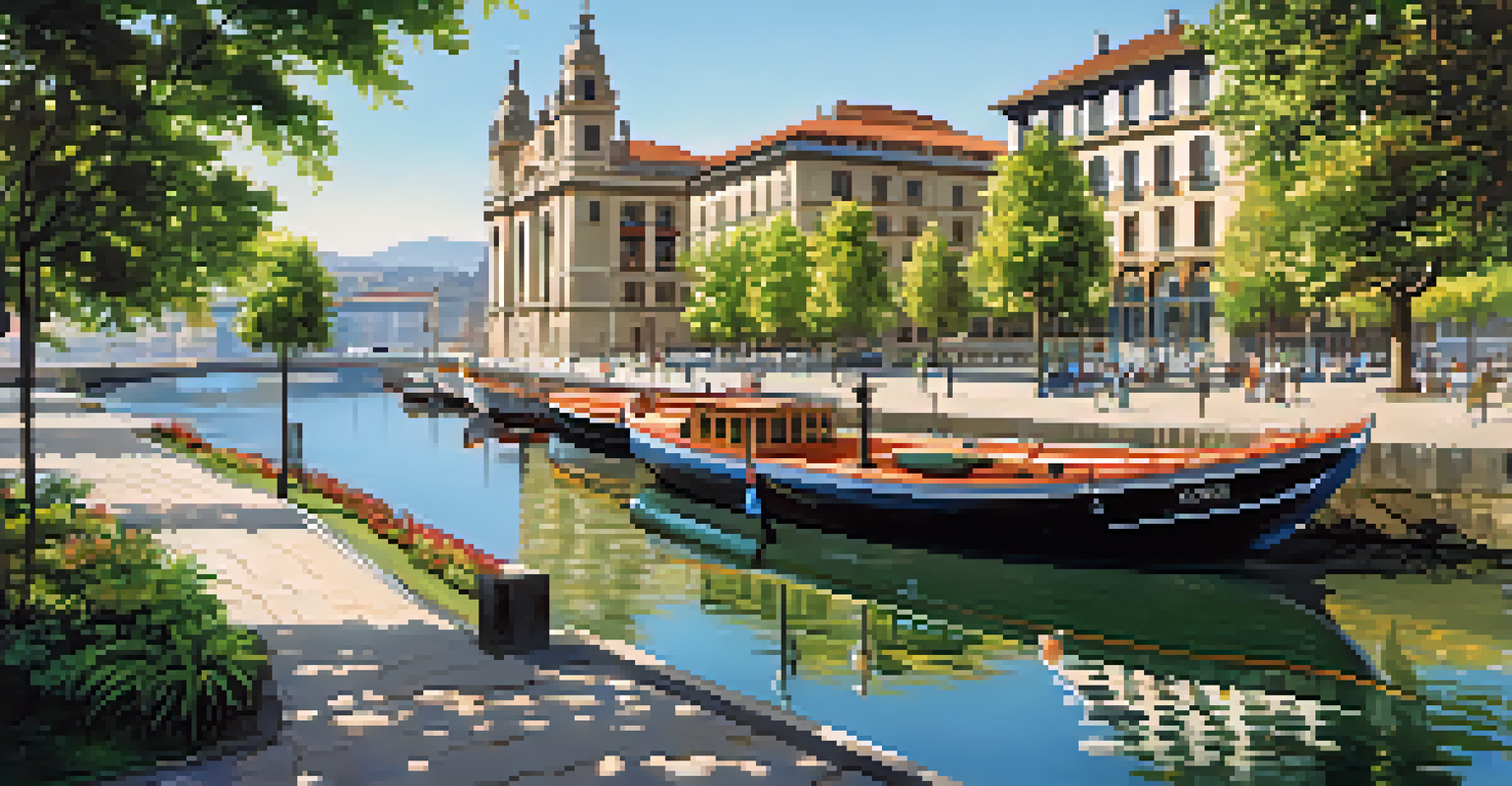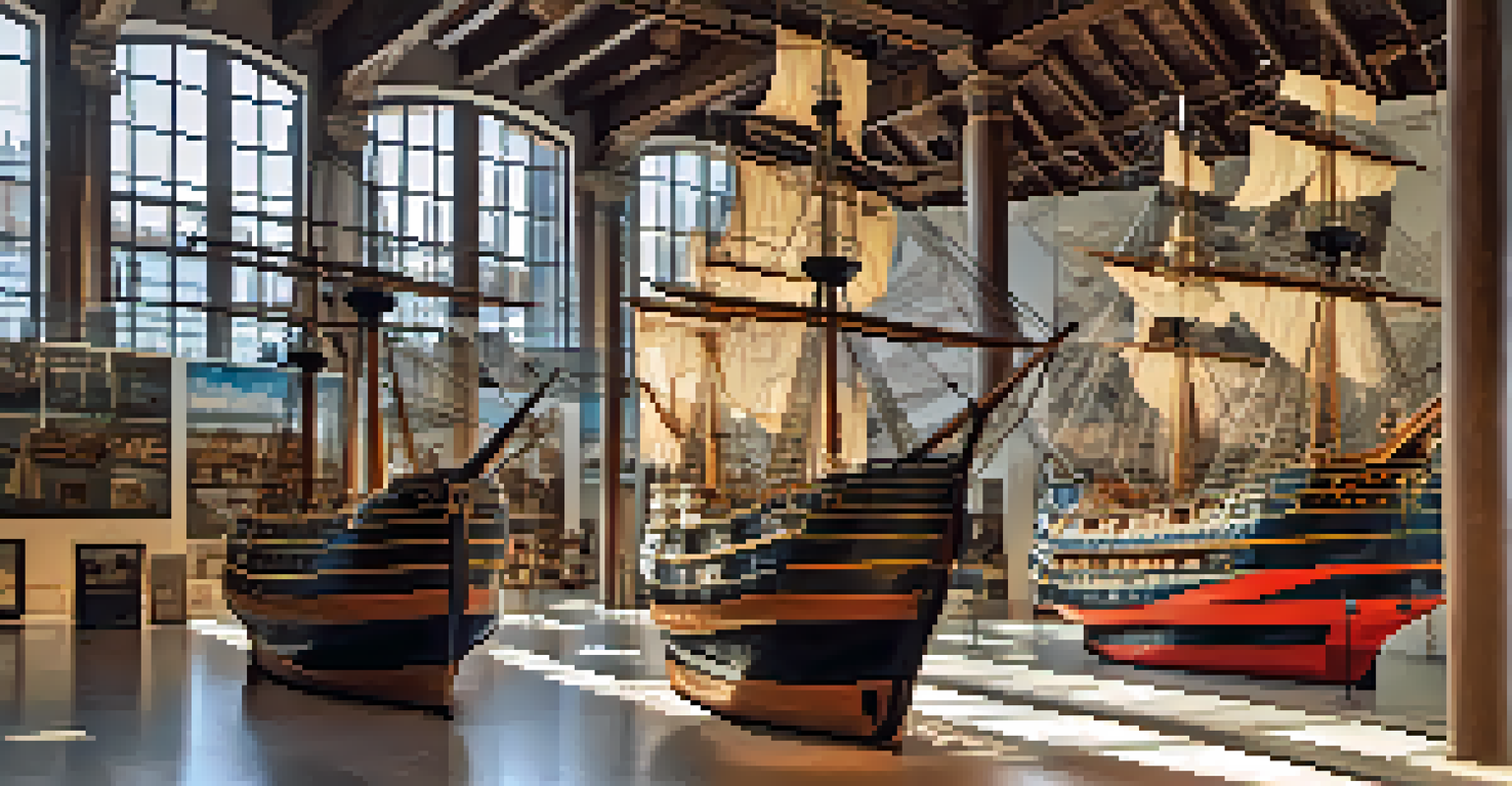Top Maritime Museums in Spain: A Guide for History Lovers

Discover Spain's Maritime Heritage at the Museo Naval
Located in Madrid, the Museo Naval offers a deep dive into Spain's seafaring history. From ancient naval battles to the age of exploration, this museum showcases a plethora of artifacts and exhibits that narrate the evolution of the Spanish navy.
The sea, once it casts its spell, holds one in its net of wonder forever.
Visitors can marvel at a variety of ship models, maps, and paintings that highlight significant naval events. One standout feature is the impressive collection of maritime instruments, which illustrates the technical advancements over the centuries.
For history lovers, the museum not only provides an educational experience but also evokes a sense of pride in Spain's maritime legacy. Engaging exhibits are designed to captivate both adults and children, making it a perfect family outing.
Explore the Rich Maritime History at the Museo Marítimo
In the heart of Bilbao, the Museo Marítimo del País Vasco celebrates the maritime culture of the Basque Country. This museum is uniquely set along the river, emphasizing the region's connection to the sea.

The museum features a blend of indoor and outdoor exhibits, including traditional fishing boats and shipbuilding displays. Visitors can also enjoy interactive installations that bring the maritime past to life, providing a hands-on approach to learning.
Explore Spain's Rich Maritime Museums
Spain boasts a diverse array of maritime museums that celebrate the country's seafaring history, culture, and traditions.
A trip to this museum is not just about viewing artifacts; it's about immersing oneself in the stories of fishermen and sailors who shaped the local culture. The picturesque surroundings make it a delightful stop for history enthusiasts.
Step Back in Time at the Museo del Mar de Galicia
Situated in Vigo, the Museo del Mar de Galicia takes visitors on a journey through the sea's influence on Galician culture. This museum beautifully intertwines history, art, and folklore, showcasing how the ocean has shaped the region's identity.
A ship is safe in harbor, but that's not what ships are for.
Exhibits feature everything from traditional fishing techniques to the impact of maritime trade on local communities. The museum also highlights the importance of conservation and sustainable practices in modern maritime activities.
With its stunning coastal views and engaging displays, this museum offers a refreshing perspective on maritime history that resonates with both young and old. It's a must-visit for those looking to understand the relationship between Galicia and its maritime roots.
Experience the Nautical Wonders at the Barcelona Maritime Museum
The Museu Marítim de Barcelona is housed in the historic Drassanes Reials, a former shipyard dating back to the 13th century. This museum captures the essence of Barcelona’s rich maritime history with its impressive collection of ships and nautical artifacts.
Visitors can explore the museum's large ship models, navigational instruments, and historical documents, which tell the story of maritime trade and exploration in the Mediterranean. The interactive exhibits invite guests to engage and learn through immersive experiences.
Interactive Exhibits for All Ages
Many of these museums feature engaging, hands-on exhibits that captivate both children and adults, making learning about maritime history enjoyable.
With its central location and fascinating exhibits, the Barcelona Maritime Museum is not only a feast for history buffs but also an ideal spot for families looking to spark their children's curiosity about the sea and sailing.
Dive into Maritime Exploration at the Canary Islands Maritime Museum
The Museo de la Ciencia y el Cosmos in Tenerife features a unique section dedicated to the maritime history of the Canary Islands. This museum explores the role of the islands in ocean exploration and trade routes.
Exhibits include fascinating displays of the indigenous cultures that thrived on the islands, alongside artifacts from shipwrecks and maritime expeditions. The emphasis on astronomy and navigation highlights how these elements were crucial for explorers venturing into the unknown.
This museum offers a refreshing take on maritime history, showcasing how the Canary Islands served as a gateway to new worlds. It's an engaging experience for those interested in the intersection of science, history, and exploration.
Uncover the Secrets of Shipbuilding at the Maritime Museum of Barcelona
The Museu Marítim de Barcelona not only showcases maritime artifacts but also dives into the art of shipbuilding. Visitors can learn about traditional ship construction techniques and the evolution of naval architecture over the centuries.
With detailed exhibits featuring tools, plans, and models, the museum offers a comprehensive look at how ships were built to withstand the challenges of the sea. Guided tours often include insights from experts who share their passion for maritime craftsmanship.
Cultural Connections to the Sea
The museums not only showcase artifacts but also illustrate the deep connections between local communities and their maritime heritage.
Whether you're an aspiring shipwright or just a curious traveler, this museum provides an enriching experience that highlights the ingenuity behind ship design. It's a perfect complement to the broader maritime narrative found within the museum.
Celebrate Maritime Traditions at the Maritime Museum of Malaga
The Museo Alborania in Malaga is dedicated to the marine environment and the cultural traditions associated with the sea. It offers an engaging perspective on how maritime life has influenced local customs and practices.
Visitors can explore exhibits that showcase traditional fishing methods, marine biodiversity, and the importance of conservation efforts. Through interactive displays, the museum aims to educate guests on the delicate balance between human activity and marine ecosystems.

This museum serves as a reminder that the ocean is not just a backdrop but an integral part of the community's identity. It's a great stop for those interested in both history and environmental sustainability.